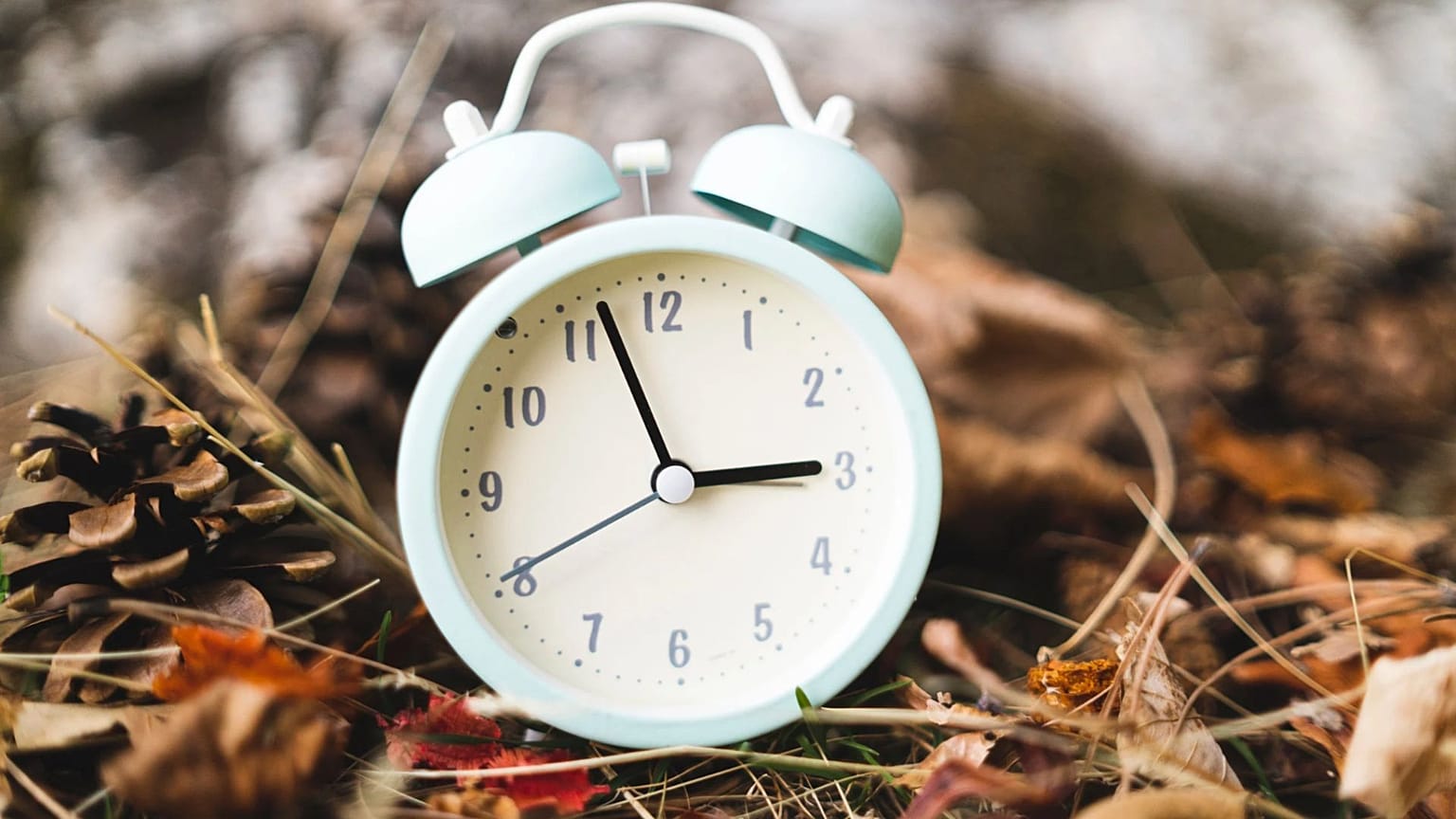The clock going back for winter is far less disruptive than the spring shift, which has been linked to spikes in heart attacks and traffic accidents.
Every year, as clocks go back in October, millions of people celebrate an “extra hour” of sleep.
But how much does this small shift really affect our bodies, our sleep and our mood?
According to experts, the autumn transition is much milder than the springtime change - but it’s not entirely harmless. The shift subtly disrupts our circadian rhythm, the internal 24-hour clock that regulates sleep, alertness, hormone production and mood.
Understanding circadian rhythms
The effects of the clock change are rooted in our circadian rhythms - the body’s internal 24-hour clock that regulates sleep, alertness, hormone production, and mood.
"There’s a circadian clock in every cell of the body, but there’s also a principal clock: a group of neurons in the brain that automatically follows light, dawn, dusk, and darkness via signals from the eyes," Timo Partonen, associate professor of psychiatry at the University of Helsinki, told Euronews Health.
"How well this clock functions affects how well we sleep and how good or bad our mood is. That’s why it’s so important," he added.
What is Daylight Saving Time?
Daylight Saving Time (DST) is the practice of moving clocks forward by one hour in spring and back again in autumn to extend evening daylight. Most of Europe, North America, parts of Africa, and Asia follow this system.
This year, clocks will go back on Sunday, 26 October.
While many welcome the extra hour, the change still nudges our internal timing - and some people feel it more than others.
"Generally speaking, despite complaints about evenings getting darker, the autumn one is usually perceived as less painful," Professor Malcolm von Schantz, a chronobiologist at Northumbria University, told Euronews Health.
"Those who dislike the autumn change mainly complain that it’s suddenly dark when they leave work. But there are two points to that. First, it simply reflects where we live: at that time of year, there aren’t enough daylight hours to keep both mornings and evenings bright. That’s not a result of the clock change, just geography.
"Second, and less intuitively, is that biologically and physiologically, light in the morning is much more important for us," he said.
Partonen agreed, saying that "the autumn clock change is easier to adjust to because it gives us an extra hour to our day. It’s easier for the principal circadian clock to adapt to this new schedule".
However, he warned that initially, sleep may not feel as refreshing as during the summer months.
"There’s also the risk that people don’t use the extra hour for sleep - instead, they stay up later and continue to build sleep debt. The change could be an opportunity to catch up on rest, but most people don’t use it that way," he said.
How the time shift can affect our bodies
The springtime hour change - which steals an hour of sleep - has been linked to short-term spikes in traffic accidents, sleep loss, and heart attacks (one study cited by the American Heart Foundation found there was a 24 per cent increase in heart attacks on the day following the switch to daylight saving time).
But the October shift can still have subtler effects.
A 2025 study by Liverpool John Moores University and the University of Oxford found that women were more likely than men to report increased worry, confusion, and stress in the days after the clock change. Disruptions to children’s routines, such as later bedtimes and difficulty waking, also contributed to stress within households.
Broader health research suggests that frequent clock changes can carry more serious, long-term risks.
A recent analysis by Stanford Medicine scientists found that biannual clock shifts may lead to higher rates of stroke and obesity. The study compared three policies - permanent standard time, permanent daylight saving time, and the current biannual shifting - and concluded that seasonal time changes are the worst option.
By modelling light exposure, circadian alignment, and health outcomes across the United States, the researchers estimated that adopting permanent standard time could prevent around 300,000 strokes per year and reduce obesity in 2.6 million people. Permanent daylight saving time would achieve about two-thirds of that benefit, according to the research.
How to maintain a regular sleeping pattern
Maintaining a consistent sleep pattern is one of the most important - and often overlooked - aspects of our long-term health.
“We know it’s important, and we also know our bodies can cope with some irregularity. But from epidemiological data, we know that for long-term health it’s better to minimise fluctuations," explained Schantz.
He described the modern habit of catching up on sleep at weekends - known as “social jet lag” - as biologically disruptive.
“Many of us get up early during the week and then sleep in on weekends - essentially shifting our schedule as if travelling to another time zone on Friday and back on Monday. That pattern has the same long-term negative effects as frequent exposure to jet lag,” he said.
A study published in the Journal of Epidemiology & Community Health found that individuals with irregular sleep-wake cycles had a 26 per cent higher risk of experiencing major cardiovascular events, such as heart attacks and strokes, even if they obtained the recommended 7-9 hours of sleep per night.
Do we need to rethink Daylight Saving Time?
Many scientists and sleep organisations - including the British Sleep Society, which made an official statement on the matter last year - support ending the biannual clock changes in favour of permanent standard time.
The European Union proposed ending seasonal clock changes in 2018, and while the European Parliament supported it in principle, member states couldn’t agree on whether to adopt a permanent standard time or summer time.
For now, the clock continues to tick back and forth each year.
Experts agree that using the extra hour for genuine rest - rather than staying up later - can help smooth the transition.
“Go to sleep early enough,” advises Dr Partonen.
“If the clock change happens on the night between Saturday and Sunday, go to bed at your usual time - or slightly earlier - on Saturday. That way, you can use the extra hour for sleep and reduce any sleep deprivation”.


















